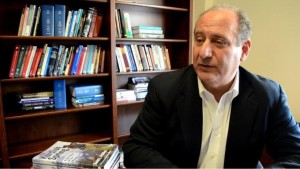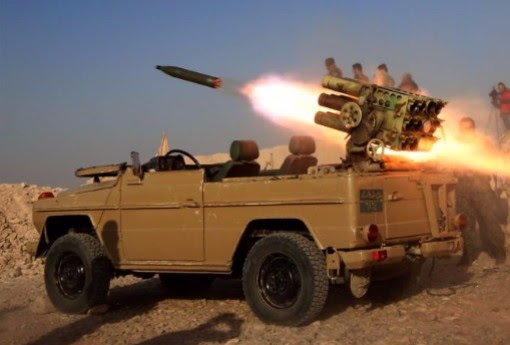By David L. Phillips*/
Erbil, Iraqi Kurdistan — The battle for Mosul is underway. It will be bloody, but the Islamic State will be defeated. Beyond Mosul, a political plan is needed to defeat Islamism in Iraq and prevent ISIS from morphing into a new, even more murderous movement.
ISIS was able to seize Mosul, Iraq’s second largest city, with less than a thousand fighters because Iraq’s Sunnis welcomed them. Twelve divisions turned tail, abandoning state of the art military equipment provided by the US to the Iraqi armed forces and police. Former Premier Nuri al-Maliki, a strident Shiite politician, polarized the country. Sunnis thought anything was better than Shiite domination until they discovered the harsh reality of life under ISIS.
The 2005 power-sharing constitution sought to harmonize sectarian and ethnic differences between Iraqis. However, the constitution was never implemented. After fourteen years of civil war, it is time to recognize that Iraq is not a functional unitary state.
The Trump administration should allow Iraqis to break-up Iraq, reconstituting in three parts. Enfranchising Sunnis as stakeholders with control over their governance, security, and resources would encourage moderation among Sunnis living in Anbar, Nineveh and Saladin governorates. They deserve an entity of their own.
Iraq’s break-up would legally affirm the de-facto independence that exists in Kurdistan today. Kurds are staunchly pro-American and a proven partner in the fight against ISIS.
The rest of Iraq, overwhelmingly Shiite with Baghdad as its capital, would include the holy cities of Najaf and Karbala, as well as oil fields in the southeast. Iraq would inevitably remain under Iranian influence with security provided by Popular Mobilization Units, an affiliate of the Iranian Revolutionary Guard. Iraq became a proxy of Iran in 2003 when regime change empowered its Shiite majority.
Would newly-independent states emerging from Iraq’s break-up be viable? The Shiite region surely would; Baghdad would retain ownership of vast oil reserves in Basra.
Oil and gas fields in Kirkuk and on the outskirts of Suleimania would provide a revenue stream for Kurdistan.
Sunni areas have no hydrocarbon wealth. The terms of an amicable divorce, therefore, must include wealth-sharing so Sunni tribes are not without.
An independent Kurdistan is in America’s interest. Kurds are America’s best and only friend in the Middle East (except Israel).
Kurdistan’s independence would strengthen security cooperation with Kurdish Peshmerga – “those who face death.” Peshmerga have proven their mettle battling ISIS.
The Kurdistan Regional Government is a valuable source of intelligence, which helps US-led efforts to counter violent extremism in the region.
As a moderate, Muslim-majority country, Kurdistan represents an alternative to radical Islamism in Turkey and the Gulf States.
If anti-Americanism results in Turkey’s decision to deny the US access to Incirlik Air Force Base, airfields in Iraqi Kurdistan could become the staging ground for fighting ISIS in Iraq and Syria. In this event, Iraqi Kurdistan would function as the eastern flank of NATO.
Not only is Kurdistan pro-American. It is friendly to Israel, cooperating in a variety of security and economic fields.
Trump promised to shake things up. A reality-based approach, recognizing Iraq as a failed state, is overdue and necessary.( Hufington Post)
*David L. Phillips is Director of the Program on Peace-building and Rights at Columbia University’s Institute for the Study of Human Rights. He served as a Senior Adviser and Foreign Affairs Experts at the US Department of State during the administrations of President Clinton, Bush, and Obama. He has published many books on the Middle East including “An Uncertain Ally: Turkey Under Erdogan’s Dictatorship”, “The Kurdish Spring: A New Map for the Middle East”, and “Losing Iraq: Inside the Post-War Reconstruction Fiasco”.




